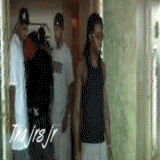
Originally Posted by
ISAtlanta300
When a check is small enough, they "hold it against your funds" and it may appear as "cleared" while it may not have cleared yet.
Let's say you deposit a $ 20 check. And your balance is $ 50.00 They "hold the check against your balance", meaning, that even if the check were to bounce, you have enough money to cover for the $ 20 check to your balance (assuing that you never "clear out" your account up to a zero balance).
Now if you deposited a $ 200 check, in the old days it would not show until some day later. Nowadays the "funds" would be available only if you have money to "hold it against you" . Like, if I have $ 1000 in my account, they would credit the $ 200 against it, assuming I don't blow $1000 in 3-4 days. If the check were to bounce, I would still have enough money to be "safe". Now if my balance was only $50.00, they will/ should not credit it until 3 -4 days later (or whatever time it takes to clear". It takes longer if it is 1. an out of state check and 2. drawn on a less, mainstream bank.
When checking your statement online, sometimes, deposits are put on "hold" and you can see that. It will have an asterix saying "These transactions occured on your account, but have not yet posted". It will show the amounts as "credit", but they are technically "not posted" yet. The exception is when it is cash, or a transfer from , say your savings.
SO what may have happened in your case is that you deposited the checks, and they "credited it against your balance". And then you went out to spend MORE than the deposit amount combined...the full amount and some. Thus causing an overdraft.
I believe though, that the bank acted in error. Cash would be available the same day, but checks should be "on hold' until it clears. If they make the money available, then it is not your fault. You HAD money in your account. THey had the choice not to make the funds available to you. I would also contact the check issuers and worse case scenario, tell them to send you a money order PLUS the fees for the bounced checks.







 Reply With Quote
Reply With Quote





 wachovia is the way to go!
wachovia is the way to go!





